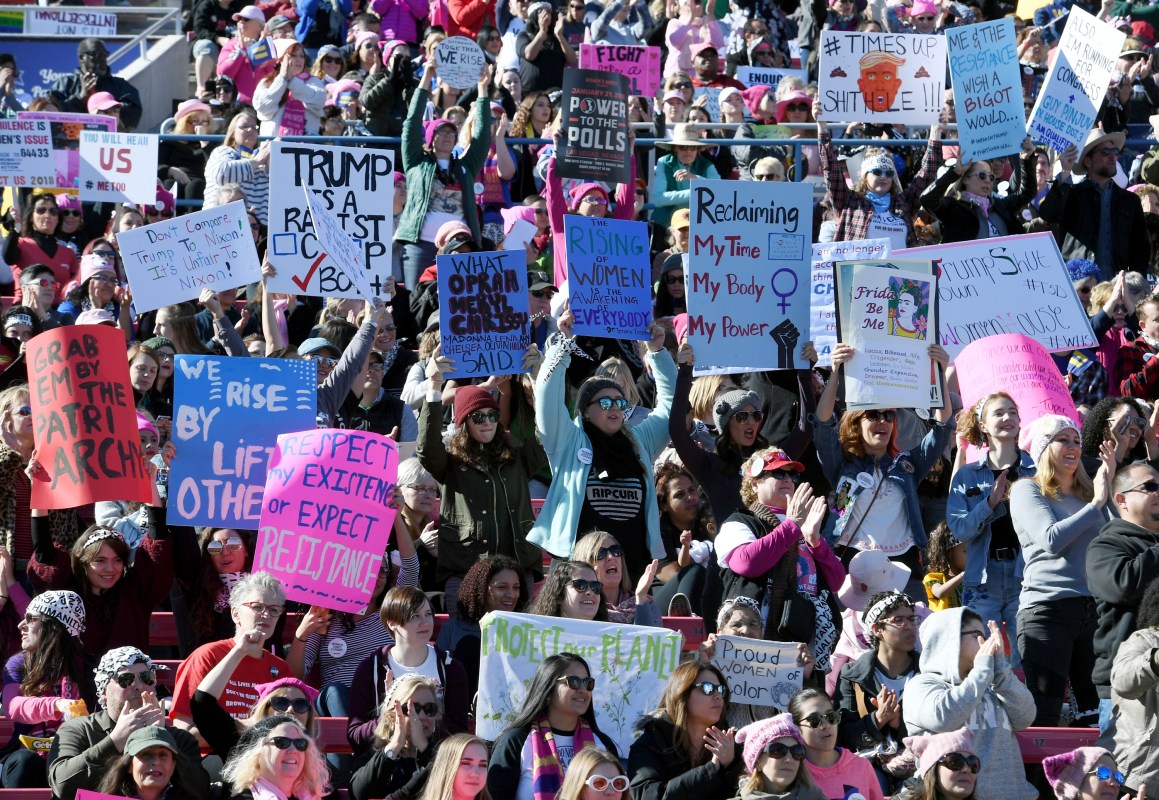Two years after the historic Women’s March on Washington and around the world drew nearly 4 million women to the streets to protest the inauguration of Donald Trump, demonstrators will once again organize for the third annual installment.
“Save the date,” reads an announcement on the organization’s website. “The #WomensWave is coming, and we’re sweeping the world forward with us.”
The group announced on Wednesday that this year’s march will relocate due to the government shutdown and the possibility of snow, The Cut reported. According to the updated schedule, the day is scheduled to kick off at Freedom Plaza at 10 a.m. on January 19. At 11 a.m., protesters will march and then return to Freedom Plaza at 12:30 p.m. for a rally.
There will be fewer sponsors this year than in the past since the organization was dogged with allegations of anti-Semitism and mismanagement. One of the major losses the Women’s March incurred was the Democratic National Committee. The DNC has not commented on the specific reason behind its decision, according to The Cut, but the committee issued a statement in support of women’s rights on January 15.
“The DNC stands in solidarity with all those fighting for women’s rights and holding the Trump administration and Republican lawmakers across the country accountable,” the statement reads. “Women are on the front lines of fighting back against this administration and are the core of our Democratic Party.”
And women across the country will still be able to protest if they please. There’s expected to be at least one march in each state, according to the Women’s March website.
Thanks for reading InsideHook. Sign up for our daily newsletter and be in the know.


















